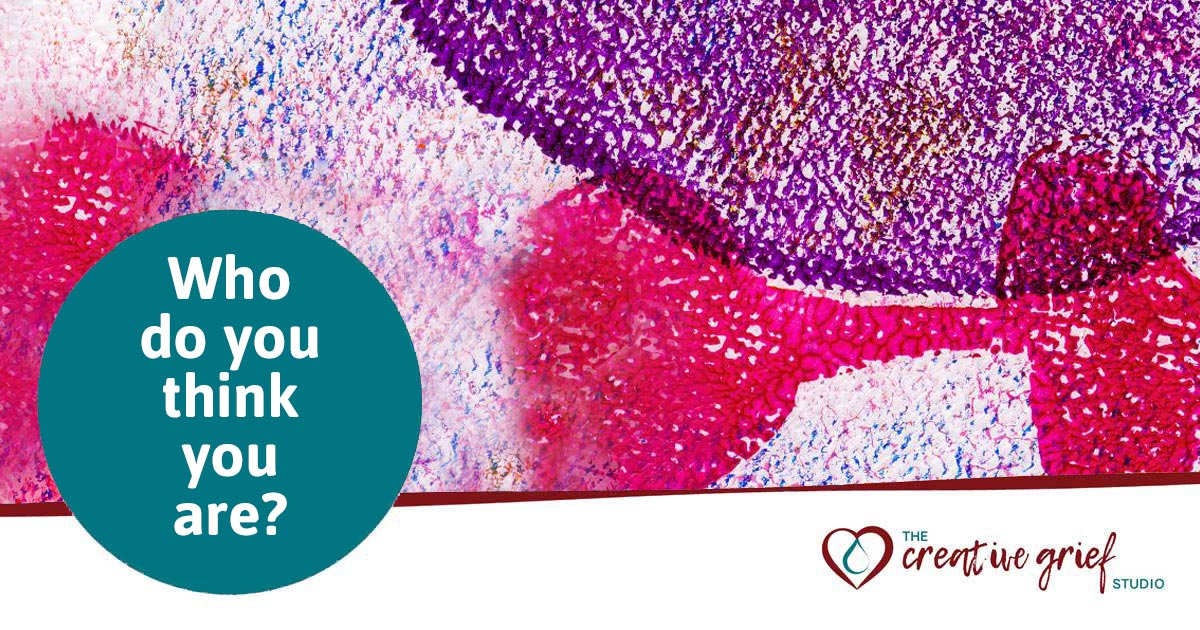As grief support practitioners, we’re having conversations and working creatively with our clients in ways that we hope will help our clients to explore their grief and to make meanings that are comforting, sustaining, and hopeful, after loss. Contrary to popular and traditional ideas of therapists and such, we are not a blank and objective slate.
Who are you?
Who we are influences how we spend time with our clients, the relationship we form with our clients, and the meaning that our clients make:
- We have opinions, beliefs, values, assumptions that inform what we notice in our client sessions, what questions we ask, what we listen for, what we respond to and what we ignore, what language we choose for articulating our responses, how we frame problems and solutions, what we believe about how change happens, and much more. All of this can vary widely from one grief support practitioner to the next, and it has a big influence on how grief support conversations go.
- We have social identities that might be more obvious to others, like our professional identity, nationality, language, race, age, gender preference, dis-/ abilities, socio-economic status, and the social world that we identify with (for example in the way that we dress, the car we drive, the way we decorate our office, and so on.) All of this influences assumptions that our clients might make about us, and this can influence what they’re willing and not willing to talk with us about, as well as their expectations about our preferences for how they should behave and what they should say, in order to be a “successful client.”
- We also have less obvious social identities, such as religion, sexual preferences, health, marriage or parenting status, and more. These are things that may or may not become known about us, by our clients. These social identities affect how we relate with our clients, including how we perceive and interact with their social identities, and the meanings they make after loss.
- The relationships between our social identities and our client’s social identities will have impacts on the nature of the relationship we’re able to form with our clients, and the distribution of agency and power in that relationship.
Social identity, power, and privilege
This is why we talk about social identity, power and privilege in our Certification in Creative Grief Support. We want to train grief support practitioners who can reflect and see the impacts of their social identities on their relationships, work, and client outcomes. We want to see more grief support practitioners who understand how social identities might influence differences in people’s experiences, values, preferences, and meaning-making, and who respect those differences. We want to support more grief support practitioners who can see how social identity, power dynamics, privilege, and access influences and constrains their client’s meaning-making after loss, so that they can support their clients to find greater agency and make meanings that enrich their lives and help them to feel more free.
As a way of beginning to practice with these skills, ask yourself:
- What are your social identities?
- What are the aspects of your identity that contribute to your privilege and social power?
- What are the aspects of your identity that take away from your social power and privilege?
- In what areas of your life do you feel “different” to “the norm”? What’s that like for you?
- In your family and social circle, how many friends are different to you in relation to skin colour, nationality, home language, level of education, religious beliefs, physical abilities, mental health, gender expression, sexuality, sex, personal wealth, family construction?
- If the only time you encounter “other” is in your work, how might this affect your ability to relate with and support your clients?

